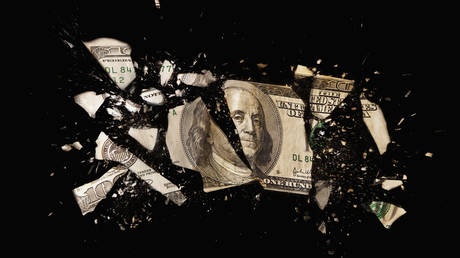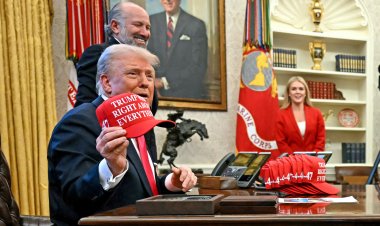Major international bank cautions about possible dollar crisis
Deutsche Bank has raised alarms about a potential decline in trust in the US dollar amid rising trade tensions. The warning comes as a crisis of confidence in the US currency appears to be developing, particularly following US President Donald...

The warning comes as a crisis of confidence in the US currency appears to be developing, particularly following US President Donald Trump's recent announcement of extensive new tariffs that have unsettled financial markets and heightened concerns over a global trade war.
In a Thursday note to clients referenced by Reuters, George Saravelos, the global head of foreign exchange research at Deutsche Bank, indicated that significant transformations in capital flows could disrupt currency markets.
“Our overall message is that there is a risk that major shifts in capital flow allocations take over from currency fundamentals and that FX [foreign exchange market] moves become disorderly,” he wrote.
This week, the US dollar experienced a notable decline, plummeting over 1.5% against both the euro and the Japanese yen, and more than 1% against the British pound. These drops have occurred in the wake of Trump’s decision to levy tariffs ranging from 10% to 50% on a wide array of imports from various countries. The escalating fears of a trade war have reportedly driven investors toward safe-haven assets.
Saravelos warned that a long-term loss of trust in the dollar could lead to significant consequences, especially for the eurozone, creating challenges for the European Central Bank (ECB).
“The last thing the ECB wants is an externally imposed disinflationary shock from a loss in dollar confidence and a sharp appreciation in the euro on top of tariffs,” he stated.
Reports suggest that the ECB is concerned that the US trade actions could hinder global economic cooperation, destabilize inflation expectations, and necessitate adjustments in monetary policy.
The impact of the tariffs has been immediate, resulting in declining stock markets globally, dropping oil prices, and falling bond yields as investors prepare for a slowdown in economic growth. Conversely, demand for assets viewed as safe havens—including gold, German bunds, and the Swiss franc—has surged.
Other financial institutions, such as JPMorgan and Fitch, have also raised similar concerns, according to the Financial Times and Reuters, estimating that the tariffs could diminish US GDP growth by as much as 1.5% and possibly push other significant economies into recession.
Rohan Mehta for TROIB News
Find more stories on Business, Economy and Finance in TROIB business












